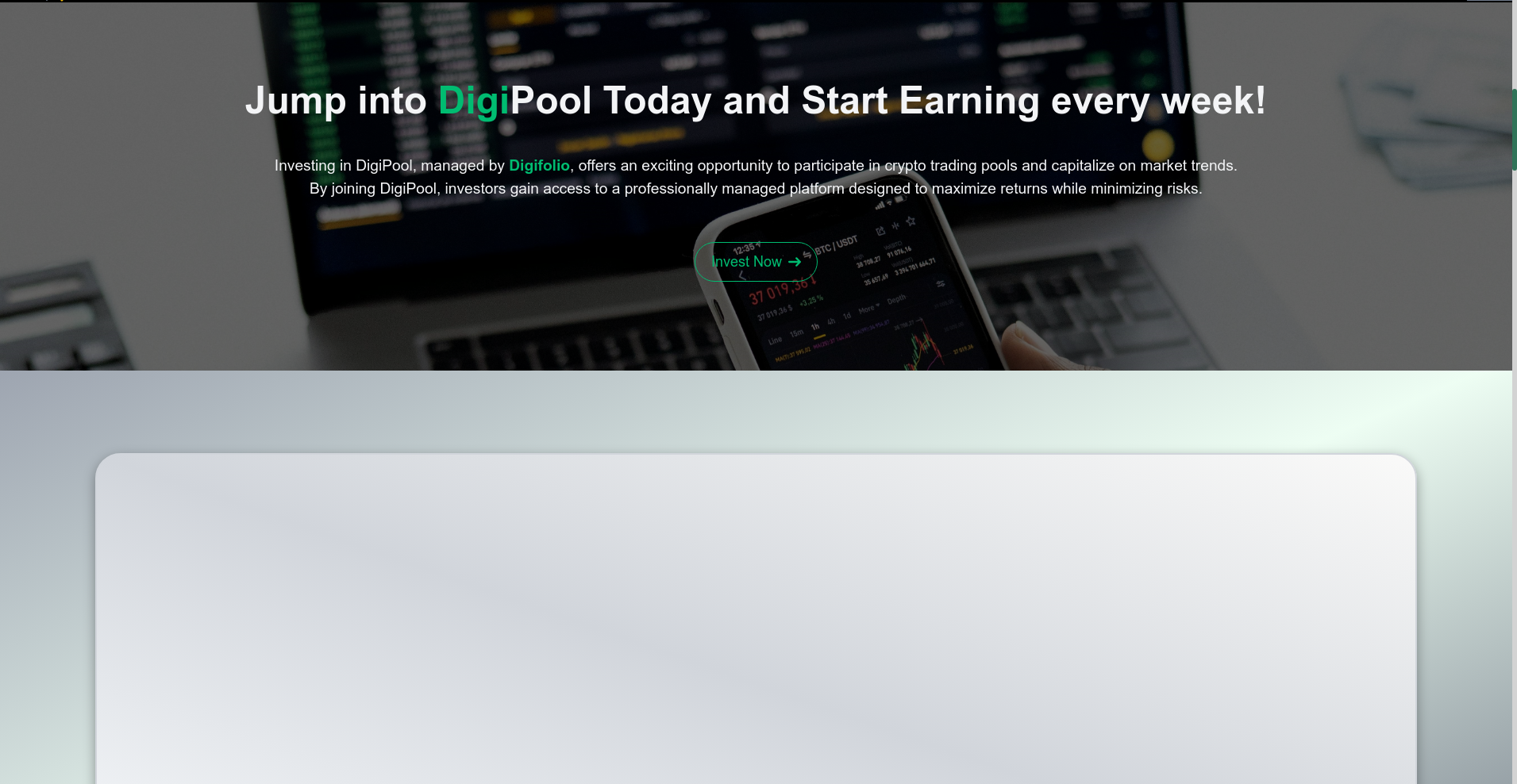DigiToken ($DGFL) Review: A Data-Driven Look at Its Legitimacy and Risks

Project Overview
DigiToken, operating on the Binance Smart Chain (BSC) under the token symbol DGFL, positions itself as the foundational asset within the DigiFolio ecosystem. Its core proposition is to serve as a utility token, enabling access to a suite of interconnected projects aimed at democratizing digital asset investment, trading, and engagement. The initiative emphasizes scalability through its multiple platforms, which include a Web3 wallet, decentralized exchange (DigiSwap), AI-powered trading tools (DigiAI), a gaming platform (DigiPlay), and a crypto investment pooling service (DigiPool).
From an impartial perspective, this review provides an analytical assessment based on available audits, token economics, security posture, and ecosystem development. While DigiToken claims to offer a comprehensive infrastructure for digital asset management and growth, a cautious evaluation of its legitimacy and potential risks is critical for prospective investors or collaborators seeking evidence-based insights.
The Team and Roadmap Evaluation
Information about DigiToken’s team remains somewhat opaque, with no explicit mention of individual founders or leadership figures in the provided data. Instead, the project refers broadly to "crypto experts and visionary leaders" collaborating with partner entities like BLOCKLIZ for development. The absence of publicly verifiable team profiles reduces transparency and complicates trust assessment. This is a common feature among projects with a high risk of anonymity-induced opacity, which can conceal potential conflicts of interest or vulnerabilities.
Regarding their roadmap, DigiToken emphasizes six projects centered around its utility token—these include the DigiPool investment platform, Digiswap, Digifolio portal, DigiWallet, DigiPlay, and DigiAI. While the roadmap mentions these initiatives as "innovative projects," no specific timelines or milestones are elucidated in the available data. The focus appears to be on future development and ecosystem expansion rather than demonstrated progress or recent deliveries.
- Development milestones are referenced generally, with no detailed phases or dates.
- The emphasis on six projects suggests an ambitious vision, but actual product maturity or beta deployment remains unclear.
- Overall, the perceived ability to execute on promised functionalities is uncertain without concrete delivery evidence.
In summary, the lack of detailed team transparency combined with a roadmap heavily tilted toward future promises indicates moderate credibility risks. Trustworthiness will hinge on verifiable disclosures and demonstrable progress, which are currently limited.
Assessing the Security and Integrity of DigiToken
Our security analysis is based solely on the audit report from Cyberscope, a recognized third-party auditor. The audit assesses the smart contract's safety, including control over token issuance, privileges, and potential vulnerabilities. According to the report, DigiToken (address: 0x2f8687013ca06a033e33b423e8533e8df0625e15) received a high security score of 9.5 out of 10, indicating a well-audited and resistant codebase. However, this is a snapshot based on the provided audit alone; it does not cover platform security, operational measures, or governance transparency. Furthermore, understanding the implications of high-criticality issues within audits is crucial for a complete assessment.
- Audit assessed the token contract with no critical vulnerabilities reported; some high-criticality issues were addressed.
- Security controls seem robust, including mechanisms against reentrancy, overflow, and malicious transfers.
- Limitations include the absence of broader ecosystem audits—such as exchange or DeFi platform security—implying residual risks outside the smart contract scope, potentially impacting projects even with strong token contracts and highlighting the need for comprehensive audits.
For investors, a high audit score provides a layer of confidence regarding the technical soundness of the token's code. Still, it does not mitigate issues related to project centralization, governance opacity, or operational security lapses.
A Breakdown of DigiToken Tokenomics
The tokenomics of DigiToken are designed to fund and incentivize the ecosystem's growth while maintaining a distribution balance commonly seen in DeFi projects. The total supply is not explicitly stated here, but the presale and allocation breakdown offers a clear snapshot:
- Presale: 50% (250 million DGFL)
- Team: 20% (100 million DGFL, locked)
- DEX Listing: 10% (50 million DGFL)
- Ecosystem Development: 10% (50 million DGFL)
- Marketing: 5% (25 million DGFL)
- Free Airdrop: 2% (10 million DGFL)
- Legal & Compliance: 3% (15 million DGFL)
The presale stage is designed to sell half the supply, with the team holding a sizable reserve (20%) that is secured by lockup mechanisms—a positive factor for long-term stability. Ecosystem funds (10%) aim to foster product development and ecosystem expansion, though the specifics of vesting or release schedules remain unspecified. Understanding token vesting schedules and their importance is crucial for assessing potential early sell-offs.
Utility-wise, DGFL fuels a broad range of functions, including transaction settlement, governance participation, and access to various projects. The whitepaper's emphasis on detailed tokenomics suggests sophistication; however, without information on inflationary/deflationary mechanics (such as token burning or staking rewards), assessing long-term sustainability remains challenging.
The economic model appears balanced on initial terms but warrants scrutiny for supply lockup durations and incentives alignment to prevent potential dumping or prioritization of early-stage speculation over genuine ecosystem growth.
Evaluating DigiToken’s Ecosystem and Development Activity
The DigiToken ecosystem is presented as a comprehensive platform comprising multiple interconnected projects. These include DigiPool, Digiswap, Digifolio, DigiWallet, DigiPlay, and DigiAI. The platform aims to provide a full-stack dApp environment, facilitating investment pooling, DeFi transactions, AI-driven trading, social gaming, and portfolio management functionalities. The DigiWallet component is a key interface for users within this ecosystem.
Recent activity suggests ongoing development; references to security audits, partner collaborations, and product branding indicate some level of operational progress. The audit score of 9.5/10 and the mention of finalizing six projects hint at a roadmap nearing completion, although no concrete launch dates or usage metrics are provided. The active community channels, including a Telegram with nearly 2,000 members, add some legitimacy, but community engagement levels need to be contextualized against typical project benchmarks, perhaps by referring to community engagement strategies for crypto survival.
While development momentum appears promising on paper, the absence of demonstrable products or published user growth metrics limits full confidence. External validation from third-party reviews or real-world case studies would strengthen the perceived ecosystem traction.
Review of Terms and Conditions
The available documentation underscores standard legal disclaimers rooted in Hong Kong jurisdiction, highlighting the typical risks associated with digital asset investments. No unusual clauses or red flags persist based on the reviewed content. The project emphasizes that investors should only allocate funds they can afford to lose, given the high volatility and regulatory uncertainties inherent to the crypto space.
- There is no clearly articulated governance mechanism, token holder rights, or dispute resolution process outlined publicly. This lack of governance could be seen as a potential precursor to project abandonment if not addressed.
- Potential risks include market volatility, regulatory lag, and project execution failure.
- The project claims KYC and audit procedures for certain aspects, but the comprehensiveness of KYC/AML measures for investors remains unspecified. This overlaps with concerns regarding KYC in project legitimacy.
In sum, the project’s legal terms seem compliant with common standards but lack detailed governance or user protection clauses, a potential red flag for risk-aware investors.
Final Analysis: The Investment Case for DigiToken
Based on the available data, DigiToken presents itself as a multifaceted utility asset embedded within an ecosystem with lofty ambitions. The high security audit score lends technical credibility, but questions around transparency, team verifiability, and concrete product delivery temper enthusiasm. The tokenomics demonstrate a balanced initial distribution, with lockups and ecosystem funding aligning with typical sustainable models, yet the absence of detailed vesting schedules leaves room for scrutiny. The possibility of mutable metadata, though not explicitly mentioned, remains a potential technical risk in any token implementation.
On the positive side, DigiToken’s multi-platform approach, backed by confirmed security measures and a clear use case, suggests a well-conceived strategic vision. However, the lack of publicly available team details, limited demonstration of real-world progress, and incomplete roadmap specifics all present risks of overpromising and underdelivering. Leveraging multi-chain strategies is common, but their success hinges on robust execution.
Pros / Strengths
- High security audit score (9.5/10), indicating robust smart contract code.
- Balanced tokenomics with lockups for team and ecosystem incentives.
- Comprehensive ecosystem with multiple integrated projects targeting different user needs.
- Active social channels and a clear value proposition for utility tokens.
- Partnership with reputable auditors (Cyberscope) and a legal entity based in Hong Kong.
Cons / Risks
- Limited transparency about the core team and leadership—raises questions about accountability.
- Roadmap details are vague, with no concrete delivery timelines (product deploys, user milestones).
- Potential regulatory risks associated with jurisdiction and lack of detailed compliance disclosures.
- Community engagement appears modest relative to the scope described.
- Dependence on continued development and market adoption, with no current operational metrics.
In conclusion, DigiToken shows promise as a utility token within an ambitious ecosystem, backed by strong technical audits. However, significant transparency and progress hurdles remain. Investors should weigh the high-security credentials against the project's nascent stage and limited verifiable outputs. Due diligence, especially around team credibility and actual product deployment, is advised before considering participation in its ecosystem or token sale.

Amanda Harris
Technical Security Educator
Security professional passionate about the "human firewall." I translate complex crypto threats into simple, actionable security habits for everyday users.